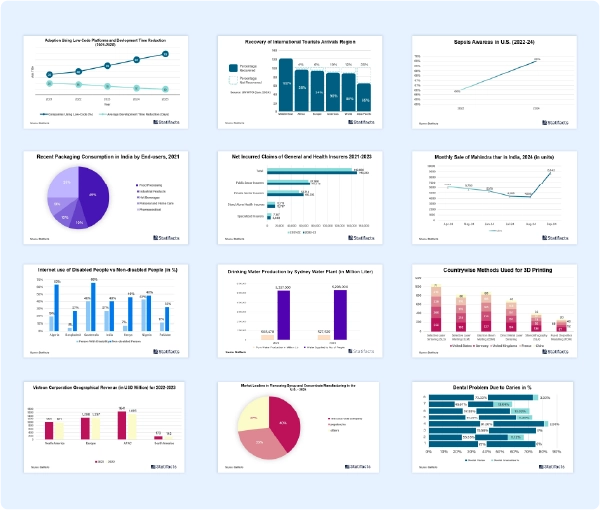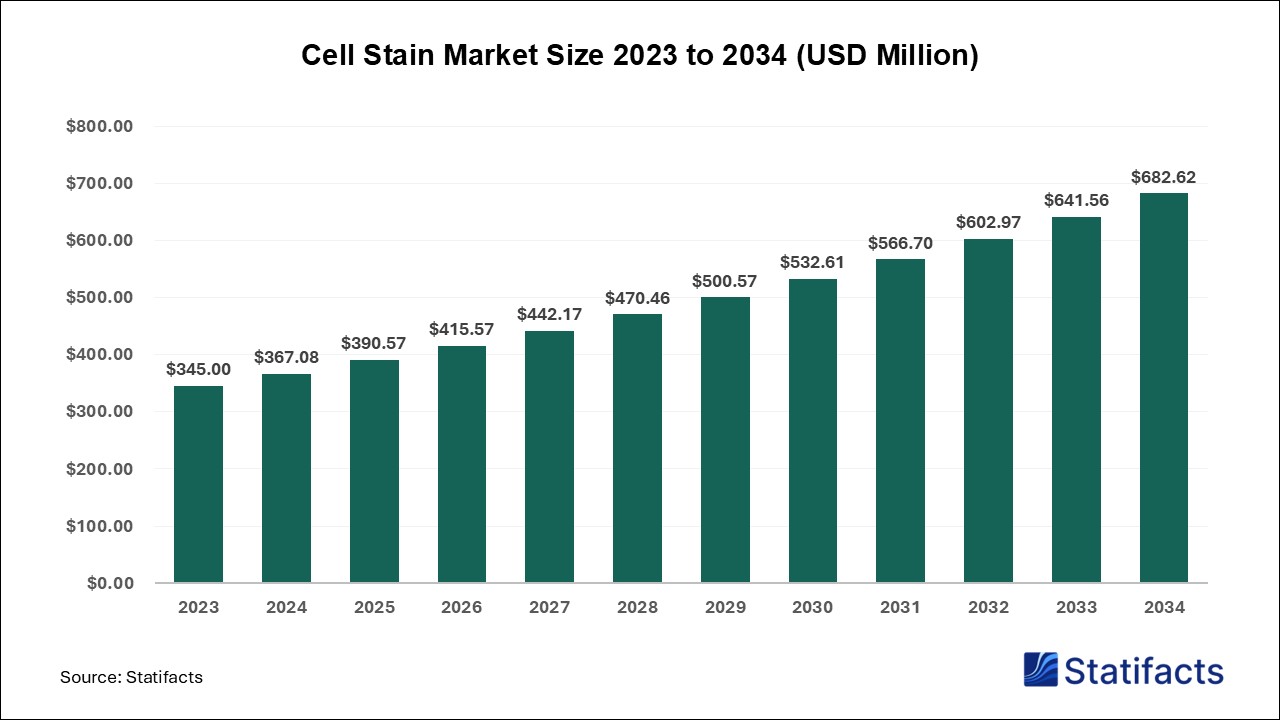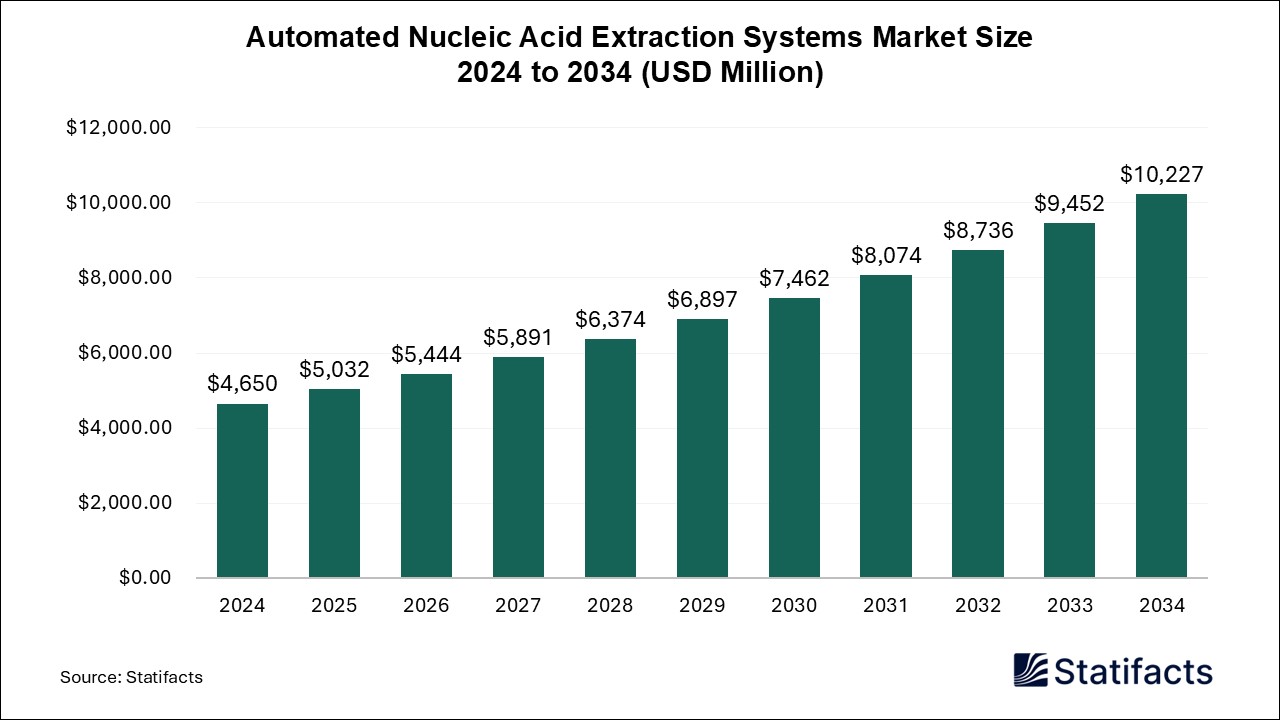

Our customers work more efficiently and benefit from
The global tumor profiling market size was calculated at USD 12,200 million in 2024 and is predicted to reach around USD 33,110 million by 2034, expanding at a CAGR of 10.5% from 2025 to 2034.
| Industry Worth | Details |
| Market Size in 2025 | USD 13,480 Million |
| Market Size by 2034 | USD 33,110 Million |
| Market Growth Rate from 2025 to 2034 | CAGR of 10.5% |
The tumor profiling market refers to the production, distribution, and application of tumor profiling, which is a laboratory method that checks for the presence of certain genes, proteins, or other molecules in a sample of blood or tumor tissue. Tumor profiling may provide information about certain molecular or genetic changes in tumor tissue, such as gene mutation or other changes in tumor DNA. Tumor profiling is the technology oncologists use to determine if the pathways of a patient’s tumor match up with available targeted treatments.
The benefits of gene profiling include providing helpful information to the care team, allowing them to plan the most effective treatment for the type of cancer, which means a better quality of life during and after treatment. It can also increase treatment success chances. Tumor profiling also allows the cancer team to predict the path cancer will take and the body’s response to treatment, determine if it could be eligible for any clinical trials, and accurately diagnose cancer. The benefits of gene profiling also include less invasive or non-invasive collection procedures and more extensive sampling.
Advancement in sequencing technologies is driving the growth of the tumor profiling market. Recent advancements have focused on faster and more accurate sequencing, reduced costs, and enhanced data analysis. These advancements hold great promise for unlocking new insights into genomics and enhancing our understanding of diseases and personalized healthcare.
There are many advantages of this technology, it is easier and quicker to prepare samples for sequencing. It can sequence DNA and RNA faster than NGS techniques, sequencing an entire human genome in as little as just 5 hours. Ultra-long reads allow more accurate and faster genome assembly. Scientists will be able to turn to the DNA sequence of the human genome and obtain detailed information on both the structure and function of any gene or protein of interest. Targeted sequencing has become an important routine technique in both clinical and research settings,with benefits including high confidence and accuracy, a reasonable turnaround time, relatively low cost, and fewer data burdens with the levels of bioinformatics or computational demand.
Rising demand for precision medicine is driving the growth of the tumor profiling market. The ability for healthcare providers to use genetic information as part of routine medical care. A better understanding of why diseases occur. The capability to predict which treatments will work best. The goal is to improve tumor response while minimizing therapy side effects, resulting in enhanced patient care and quality of life. Personalized medicines allow for the creation of focused medicines that address specific gene mutations by leveraging knowledge about a patient’s cancer, including its genetic makeup.
The benefits of precision medicine include revealing additional or alternative uses for drug candidates, increasing patient adherence to treatment, helping avoid adverse drug reactions, reducing trial-and-error prescribing, and shifting the medical emphasis from reaction to prevention. Due to advancements in precision health research or personalized medicines, doctors can customize a clinical approach to a patient’s ailment or disease based on factors like genetics, lifestyle, and environment.
Integration of artificial intelligence (AI) in genomic analysis driving the growth of the tumor profiling market. AI shortens the time and expense associated with genome sequencing. AI decreases errors and increases the accuracy of genome sequencing. AI decreases errors, increasing the accuracy of genome sequencing. AI swiftly and correctly pinpoints genetic variations related to diseases or traits. AI uses genomic data analysis to personalize medicines based on each patient's genetics. Artificial intelligence (AI) is valuable in genomics due to it allows researchers to analyze high amounts of data more efficiently and accurately than before.
According to a report published in April 2024 by a Cancer Journal for Clinicians,
Global Cancer Statistics 2022, GLOBOCAN estimates of incidence and mortality worldwide for 36 cancers in 185 countries.
Published by Laxmi Narayan , March 2025
For any questions about this dataset or to discuss customization options, please write to us at sales@statifacts.com
| Stats ID: | 8102 |
| Format: | Databook |
| Published: | March 2025 |
| Delivery: | Immediate |
| Price | US$ 1550 |

| Stats ID: | 8102 |
| Format: | Databook |
| Published: | March 2025 |
| Delivery: | Immediate |
| Price | US$ 1550 |

You will receive an email from our Business Development Manager. Please be sure to check your SPAM/JUNK folder too.

Unlock unlimited access to all exclusive market research reports, empowering your business.
Get industry insights at the most affordable plan
Stay ahead of the competition with comprehensive, actionable intelligence at your fingertips!
Learn More Download
Download

